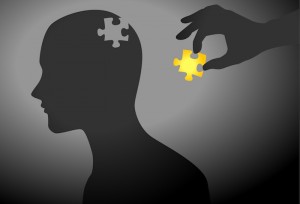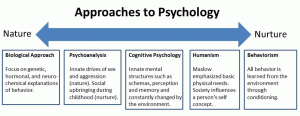Exercise is defined as any activity requiring physical effort carried out to sustain or improve health and fitness. Throughout our lives, people have been preaching the importance of exercise in order to maintain a healthy body. One aspect of physical activity that is rarely discussed is its effect on a persons brain. I feel that exercise of any type makes me more mentally alert than then when I am sitting around being lazy. Is it possible that exercise can improve a persons mental awareness? It turns out that scientists have been asking this for quite some time.
 An article written in the Physical & Health Education Journal focuses on the possible mental benefits of exercise. Scientist Atkinson Russell makes it clear that he believes exercise can improve a persons mood, concentration and memory. A team of scientists lead by Russell conducted an experiment to support his claim. In 2012 they evaluated children from various schools around the United States on their mental abilities. Once sufficient data was collected, the scientists introduced a new physical engagement program to the school that involved several fun activities. Teachers were encouraged to let their students participate in the program at least once a day before a lesson. After a year, what the team found was that the students mental ability had improved faster than the normal rate for kids their age. They were more engaged in school work and more involved within the classroom. This study provides decent evidence to suggest that exercise can have mental benefits. However, factors such as limited sample size and possible confounding variables cause speculation about its legitimacy. While this may show that casual exercise improves young children’s ability to learn, it does not prove that physical activity can directly benefits someones brain.
An article written in the Physical & Health Education Journal focuses on the possible mental benefits of exercise. Scientist Atkinson Russell makes it clear that he believes exercise can improve a persons mood, concentration and memory. A team of scientists lead by Russell conducted an experiment to support his claim. In 2012 they evaluated children from various schools around the United States on their mental abilities. Once sufficient data was collected, the scientists introduced a new physical engagement program to the school that involved several fun activities. Teachers were encouraged to let their students participate in the program at least once a day before a lesson. After a year, what the team found was that the students mental ability had improved faster than the normal rate for kids their age. They were more engaged in school work and more involved within the classroom. This study provides decent evidence to suggest that exercise can have mental benefits. However, factors such as limited sample size and possible confounding variables cause speculation about its legitimacy. While this may show that casual exercise improves young children’s ability to learn, it does not prove that physical activity can directly benefits someones brain.
The New York Times published various studies done by a team from the University of Illinois that all give convincing evidence to support my claim. In their first trial, 21 students were randomly selected and given a test that evaluated their memory. The students were then randomly instructed to either sit, run, or lift weights for about thirty minutes. When the team tested the students again, they found that ones who ran performed signif icantly better than the other two groups. In a similar study, the team assigned exercise programs to a group elderly people. One group was instructed to exercise by walking, the others were told to stretch. After six months of daily exercise, the team found that the group of walkers were more mentally active and improved noticeably on tests of memory. Both studies provide decent evidence to support my conclusion. They are done professionally and carefully. Although reverse causation can be ruled out, there could be a confounding variable causing the mental improvements. Despite the small sample sizes, the findings from both of the University of Illinois studies strengthen my claim that exercise can make a person smarter.
icantly better than the other two groups. In a similar study, the team assigned exercise programs to a group elderly people. One group was instructed to exercise by walking, the others were told to stretch. After six months of daily exercise, the team found that the group of walkers were more mentally active and improved noticeably on tests of memory. Both studies provide decent evidence to support my conclusion. They are done professionally and carefully. Although reverse causation can be ruled out, there could be a confounding variable causing the mental improvements. Despite the small sample sizes, the findings from both of the University of Illinois studies strengthen my claim that exercise can make a person smarter.
None of the three studies that I looked at provided enough evidence to conclude that exercise makes a person smarter. However, they present valid results that can persuade a person who is skeptical about my claim. To a reasonable person, there is enough evidence from these studies to make it obvious that exercise definitely has some mental health benefits. Although it may not make you a genius, it definitely gives your brain a boost.

 e getting smarter every year? Or is the changing world making the outdated questions too easy? The Better Angels of our Nature, written by Steven Pinker, claims that this effect has been observed in more than thirty countries. IQ scores improve by an average of 3 points a decade, meaning an average teenager today would have an IQ score of 118 i the 1950’s. Clearly, the intelligence of generations is steadily increasing as time goes on.
e getting smarter every year? Or is the changing world making the outdated questions too easy? The Better Angels of our Nature, written by Steven Pinker, claims that this effect has been observed in more than thirty countries. IQ scores improve by an average of 3 points a decade, meaning an average teenager today would have an IQ score of 118 i the 1950’s. Clearly, the intelligence of generations is steadily increasing as time goes on. children there is clearly a trend occurring. What makes this study so convincing is that it cannot be due to reverse causation, and there is so much evidence than it is hard to say it is coincidence. Similar trends have been observed among societies for the past century.
children there is clearly a trend occurring. What makes this study so convincing is that it cannot be due to reverse causation, and there is so much evidence than it is hard to say it is coincidence. Similar trends have been observed among societies for the past century.


 inwashing. Instead they claimed that their change in beliefs were a defense mechanism from within the brain. In order to survive the ruthless torture, they subconsciously began agreeing with the Korean beliefs. The prisoners were not actually “brainwashed.” Although they appeared to be different people, it was simply a mechanism of survival. Their core beliefs began to reemerge once they were in a safe environment.
inwashing. Instead they claimed that their change in beliefs were a defense mechanism from within the brain. In order to survive the ruthless torture, they subconsciously began agreeing with the Korean beliefs. The prisoners were not actually “brainwashed.” Although they appeared to be different people, it was simply a mechanism of survival. Their core beliefs began to reemerge once they were in a safe environment. on someones hearing.
on someones hearing.

 lity differences may be a major factor in this sort of (taste) exploration.”
lity differences may be a major factor in this sort of (taste) exploration.”
 edical fluke. Another theory suggests that the body remembers feeling better after taking previous pills, as a result it speeds up the healing process when a placebo is consumed.
edical fluke. Another theory suggests that the body remembers feeling better after taking previous pills, as a result it speeds up the healing process when a placebo is consumed. e my SAT exam, one of my friends had a prescription and suggested I take a pill to improve b
e my SAT exam, one of my friends had a prescription and suggested I take a pill to improve b
 stead of actually making an individual smarter, it causes them to think they are. The team reached the conclusion that while Adderall could be improving cognitive performance, it is very possible that the drug simply makes studying more enjoyable as a result of the euphoric feeling. This means the the drug has no direct effect on a persons intelligence.
stead of actually making an individual smarter, it causes them to think they are. The team reached the conclusion that while Adderall could be improving cognitive performance, it is very possible that the drug simply makes studying more enjoyable as a result of the euphoric feeling. This means the the drug has no direct effect on a persons intelligence. y to burn my tongue when it was hot and I simply didn’t enjoy the taste. However, over the past couple of months I have made the switch to drinking fresh brewed, piping hot coffee. It is simply less expensive and it is easier to make. Personally I feel as if iced coffee makes me feel better and more energized than hot coffee. Although this is simply an anecdotal opinion, I became curious to see wether or not there is actually a difference between iced and hot coffee.
y to burn my tongue when it was hot and I simply didn’t enjoy the taste. However, over the past couple of months I have made the switch to drinking fresh brewed, piping hot coffee. It is simply less expensive and it is easier to make. Personally I feel as if iced coffee makes me feel better and more energized than hot coffee. Although this is simply an anecdotal opinion, I became curious to see wether or not there is actually a difference between iced and hot coffee. the website found that iced coffee is actually healthier for you than hot coffee. This is due to the fact that the acidity of cold brewed coffee is almost three times less than hot coffee. The less acidic a drink is, the better it is for a persons digestive system. This explains why iced coffee tends to cause less tension in a persons stomach than a hot cup. Another benefit found in cold brewed coffee is the taste. Although taste is a usually a matter of opinion, a study done by the
the website found that iced coffee is actually healthier for you than hot coffee. This is due to the fact that the acidity of cold brewed coffee is almost three times less than hot coffee. The less acidic a drink is, the better it is for a persons digestive system. This explains why iced coffee tends to cause less tension in a persons stomach than a hot cup. Another benefit found in cold brewed coffee is the taste. Although taste is a usually a matter of opinion, a study done by the 

 achs production of serotonin. Serotonin is produced in your gastrula intestine and can be responsible for a persons mood and behavior, which can have devastating effects on a persons mental and emotional health.
achs production of serotonin. Serotonin is produced in your gastrula intestine and can be responsible for a persons mood and behavior, which can have devastating effects on a persons mental and emotional health.





